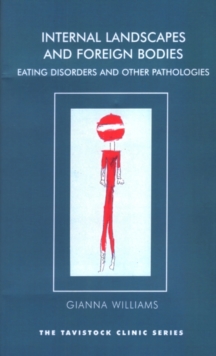
The Anorexic Mind Paperback / softback
by Marilyn Lawrence
Part of the The Tavistock Clinic Series series
Paperback / softback
Description
Eating disorders vary in severity from developmental difficulties in adolescence which may be transitory, to serious and chronic mental illnesses.
The Anorexic Mind offers a coherent approach to these difficult and demanding problems, always underlining the point that while many of the manifestations are physical, eating disorders have their origins as well as their solutions, in the mind.
While anorexia nervosa may be considered the central syndrome in eating disorders, this book also considers how it links and differs from bulimia nervosa, the more common, related disorder.
In the process of the research on anorexia and bulimia, valuable insights have been gained into the very common problem of overeating.The author takes a developmental approach to eating disorders, and is very aware of the continuities between infantile, adolescent and adult experience. Our earliest relationship is a feeding relationship and feeding difficulties early in life are not rare.
The view taken in The Anorexic Mind is that feeding difficulties indicate and reflect relationship difficulties whether they occur in infancy, adolescence or adulthood. Most eating disorders apparently begin at adolescence, though if a careful history can be obtained, it is often clear that there have been relationship difficulties at earlier stages of development.If eating disorders are understood as reflections of relationship difficulties, the author believes that they are best treated within a therapeutic relationship. Examples are given of treatment by formal psychotherapy or psychoanalysis where early difficulties become visible and treatable within the transference relationship to the therapist. The most serious cases of anorexia and bulimia nervosa are treated within institutional settings, and many patients have a number of long admissions.Part of the Tavistock Clinic Series.
Information
-
Only a few left - usually despatched within 24 hours
- Format:Paperback / softback
- Pages:160 pages
- Publisher:Taylor & Francis Ltd
- Publication Date:31/01/2008
- Category:
- ISBN:9781855753839
Other Formats
- PDF from £32.39
- EPUB from £32.39
- Hardback from £130.00
Information
-
Only a few left - usually despatched within 24 hours
- Format:Paperback / softback
- Pages:160 pages
- Publisher:Taylor & Francis Ltd
- Publication Date:31/01/2008
- Category:
- ISBN:9781855753839










